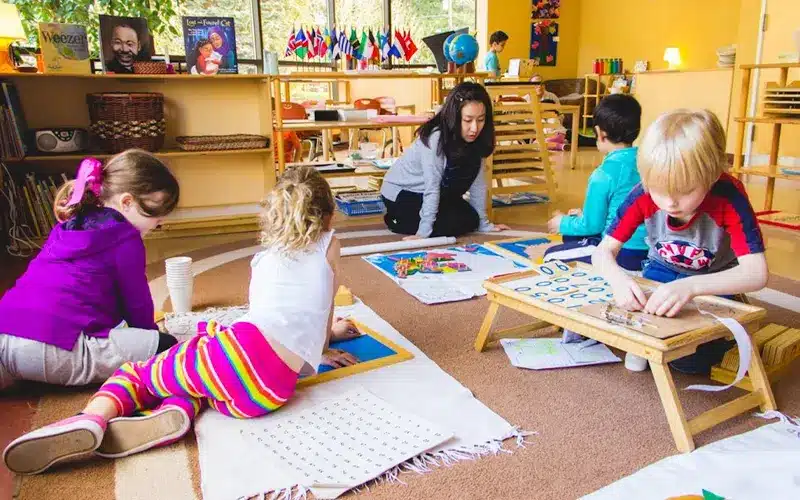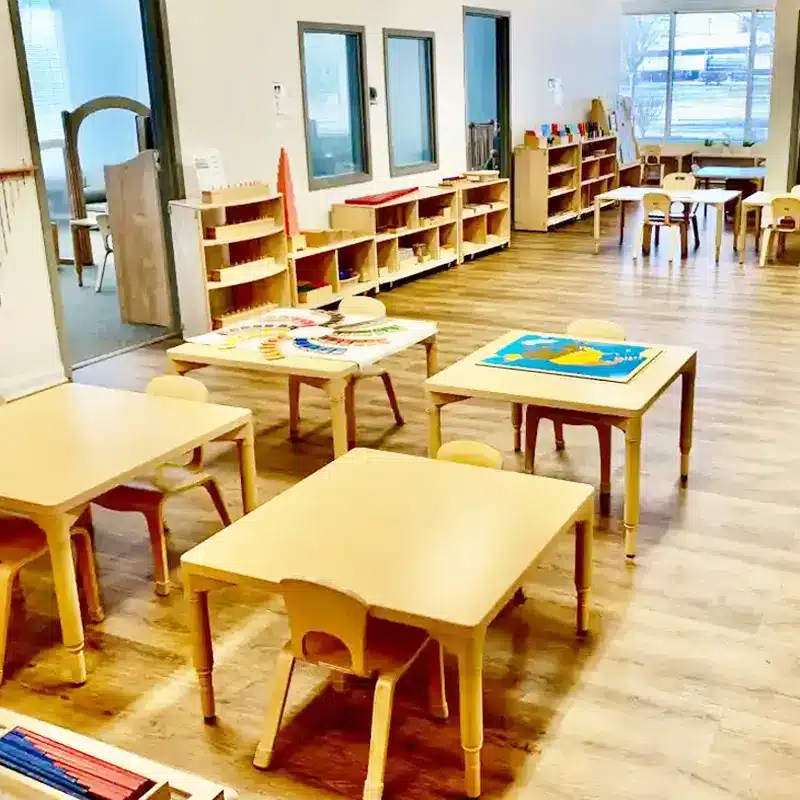The educational landscape is continually evolving, and one of the most prominent features in this dynamic terrain is ‘Auto Education’. Originating from the Montessori philosophy, this concept has gained significant attention for its unique approach to learning. But what is auto education, and how does it redefine the traditional educational paradigm?
Auto education, also known as self-education, is a groundbreaking approach that empowers learners to steer their own educational journey. It’s an ethos where the innate curiosity of children is the driving force behind their learning. In this setting, educators provide the tools and environment, but it’s the students who make critical decisions about what, when, and how they learn. This philosophy nurtures independence, bolsters critical thinking, and instills a deep-seated passion for lifelong learning. Unlike conventional education models that follow a rigid curriculum, auto education is fluid, adapting to each learner’s pace and interest.
As we dive deeper into this concept, we’ll explore its significance, especially in early childhood, and understand how it’s transforming educational practices.

Why is Auto Education Important in Early Childhood Development?
Auto education is more than a method of education; it is a catalyst for profound early developmental growth in children. It encourages children to become independent, self-motivated learners, a key quality in today’s fast-paced world. By allowing children to follow their natural instinct to learn, automotive education aligns perfectly with their innate curiosity and capacity for discovery.
In an auto-educative environment, children are provided with opportunities to make choices and take charge of their learning. This autonomy in decision-making fosters self-confidence and a sense of responsibility. As children engage with materials and activities that they are genuinely interested in, their engagement and concentration levels soar. This intrinsic motivation is key to effective and meaningful learning, and it lays down a solid foundation for their future academic and personal achievements.
What Are the Key Principles of Auto Education?
Auto education is underpinned by several core principles. Firstly, it views learning as a natural, self-driven process that thrives best when aligned with the learner’s interests. This principle is evident in the way learning environments are designed – they are inviting and equipped with resources that cater to various stages of development and areas of interest. The role of the educator is to observe and understand each child’s unique learning path and to provide materials and opportunities that align with their developmental needs and interests.

Secondly, auto education emphasizes the importance of a prepared environment. This concept goes beyond just having the right educational materials. It encompasses creating a space that is conducive to exploration and discovery, one that is safe, nurturing, and adaptable to the evolving needs of the learners. The environment is structured in a way that encourages independence and freedom within boundaries, allowing children to learn through their own experiences.
Lastly, auto education is about nurturing the whole child. It doesn’t solely focus on academic skills but also places great emphasis on physical, social, emotional, and cognitive development. This holistic approach ensures that children are not just academically prepared but are also equipped with the life skills necessary to navigate the complexities of the world.

How Can Parents and Educators Implement Auto Education?
Implementing auto education involves a paradigm shift for both educators and parents. It begins with acknowledging the child as an active participant in their learning journey. Parents and educators must create environments that encourage exploration and discovery. This means providing a variety of materials and activities that cater to different developmental stages and interests.
Educators and parents must be keen observers, able to identify the interests and needs of each child. This understanding helps in guiding the child’s learning journey, offering support and resources that align with their current interests and developmental stage.
Moreover, implementing auto education requires patience and trust in the child’s natural ability to learn. It’s about providing the necessary support and stepping back to allow the child to explore, make mistakes, and learn from them. This approach fosters independence and builds confidence, as children learn that they are capable of directing their own learning experiences.
What Are the Challenges and Limitations of Auto Education?
While auto education offers numerous benefits, it also comes with its own set of challenges.

Educators and parents need a mindset shift.
It demands a great deal of trust in the child’s ability to lead their learning process, which can be a significant departure from traditional educational beliefs.
A well-prepared, resource-rich environment.
This can be resource-intensive, requiring not only physical materials, but also a well-thought-out layout that promotes self-directed learning. In addition, automotive education methodologies may not easily align with traditional education systems, especially those that are rigid and exam-focused. This may make integration into existing educational frameworks challenging.


Aspects of quality and consistency in auto education
Because it depends so much on children’s interests and pace, there is a risk of uneven development in different areas. Educators and parents must be vigilant in ensuring that children follow their own interests while also being exposed to a wide range of learning experiences that contribute to their overall development.
Conclusion
Auto education represents a significant shift in the educational landscape, placing the learner at the center of their educational journey. This approach not only empowers learners but also fosters independence, resilience, and a lifelong love for learning. As we continue to embrace and adapt to this method, we pave the way for an educational system that nurtures capable, confident, and inquisitive individuals, ready to take on the challenges of the future.












